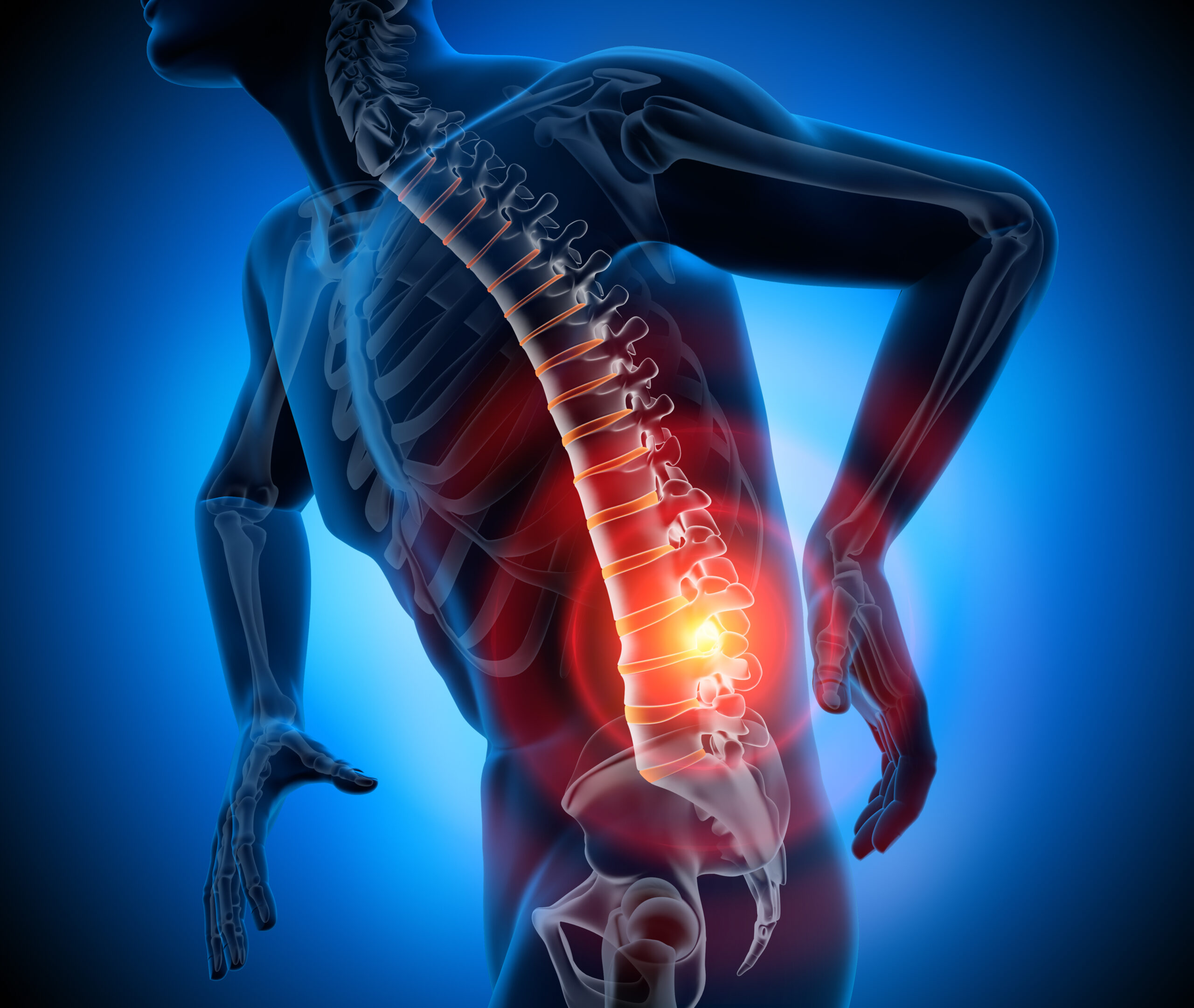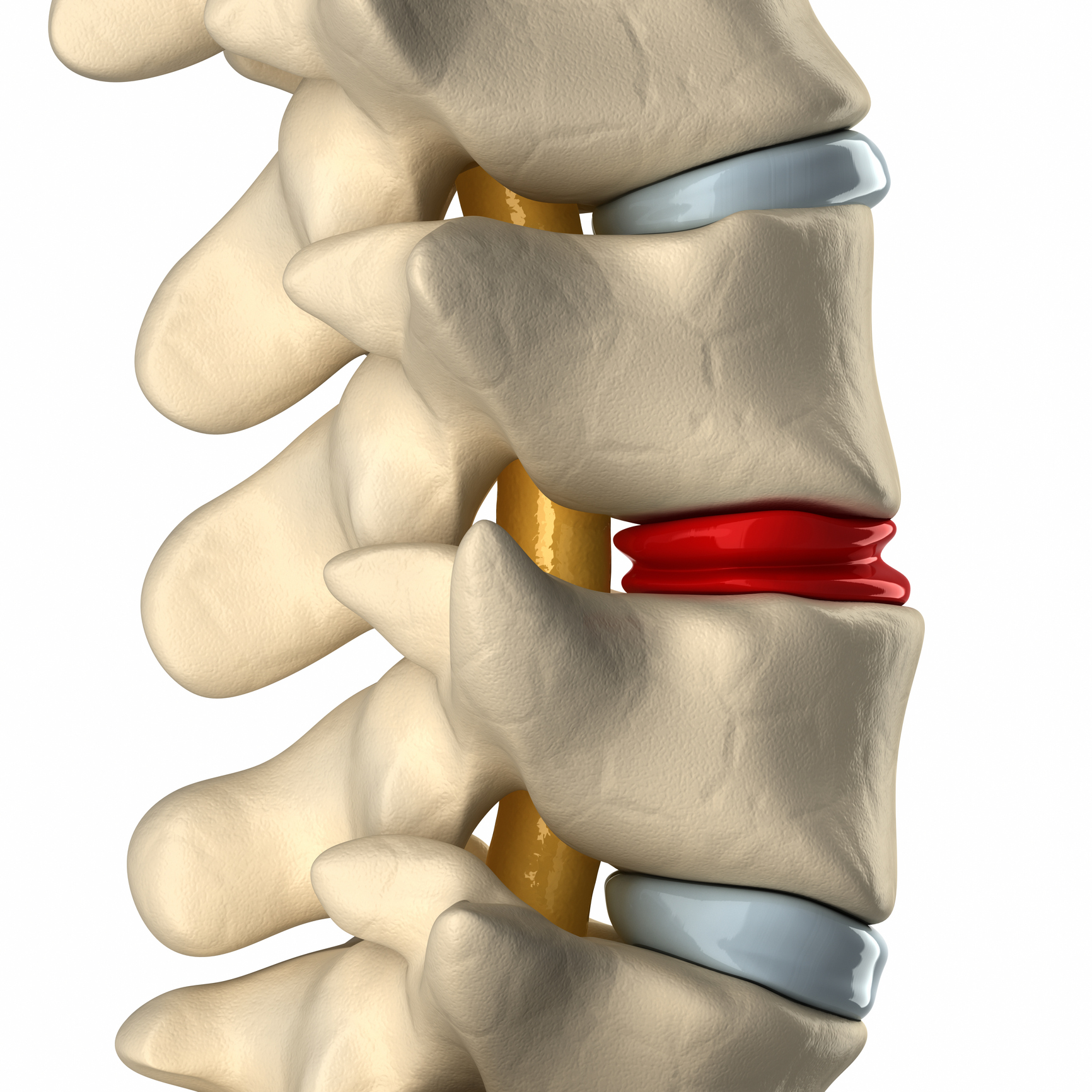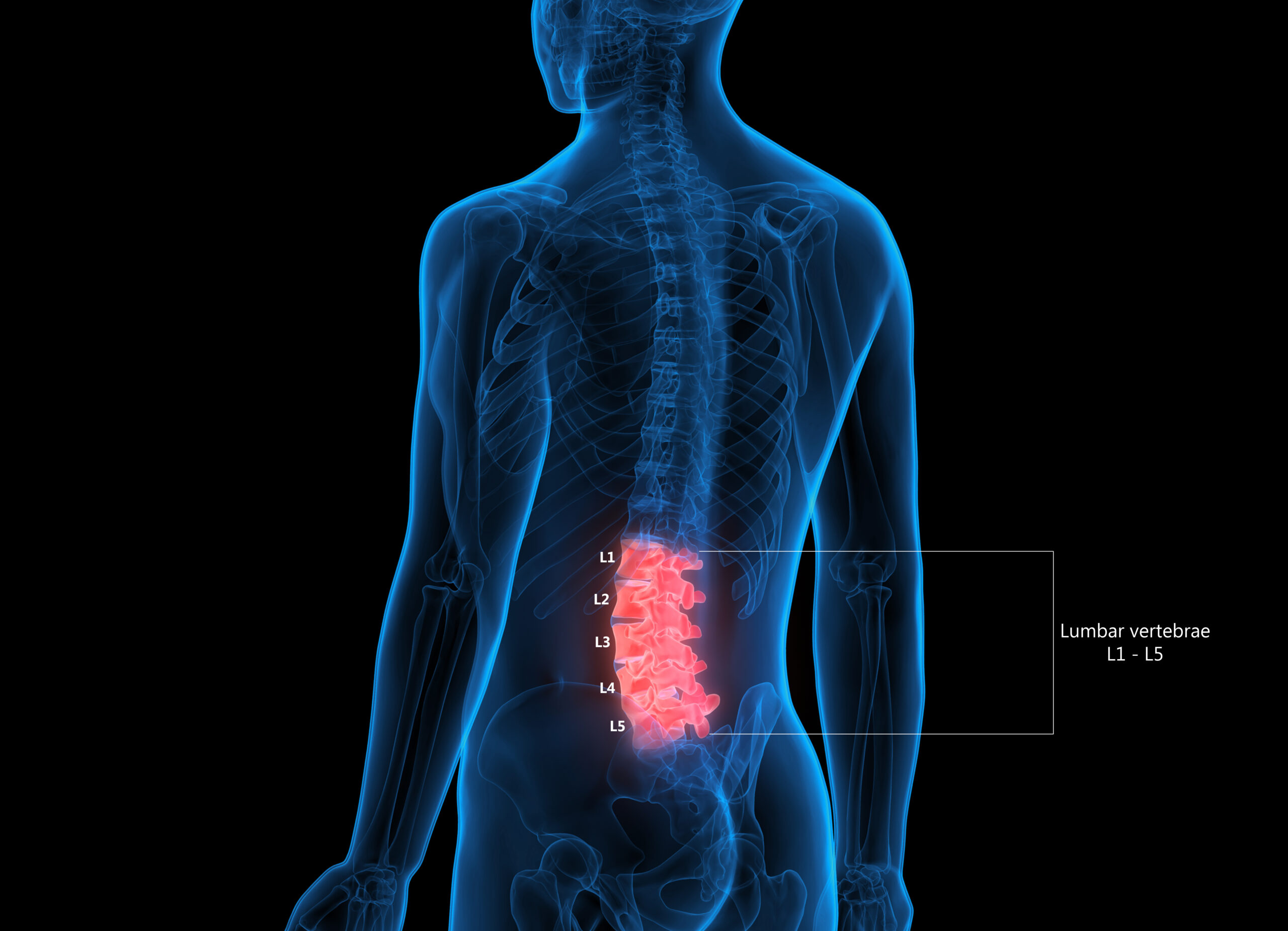We often have patients ask us if they have slipped a disc and this newsletter aims to help clarify what happens when you get pain caused by an intervertebral disc problem.The good news, is that with the correct care and management, disc problems can be resolved. Kind regards


In between each vertebra of your spine, there is a disc which acts as a shock absorber and gives the spine more flexibility.Each disc has a solid outer wall (imagine a car tyre), called the Annulus Fibrosus with an inner thick jelly core called the Nucleus Pulposus.In this picture you can see the discs highlighted white and the ‘injured’ disc as red.The spinal cord of your central nervous system is shown as yellow and off-shoots of that cord leave the spine as nerves to the rest of your body and pass right next to the disc.

A healthy disc is an oval cushion, made of fibrocartilage, that allows some movement between vertebrae without sacrificing strength. With age the disc begins to desiccate and lose its height. Flattening discs put stress on the outer wall of the Annulus Fibrosus and this can lead to torsions and small tears that might ultimately lead to a full open tear and the inner Nucleus Pulposus oozing out – a prolapsed or “slipped” disc.
However, full disc prolapses/herniations are less common than the Annulus Fibrosus bulge/flattening.
As Osteopaths, we are very keen to diagnose at which stage the disc injury is. This helps us determine treatment and management for a speedier recovery.
Disc pain can be both acute and chronic. The pain varies depending on whether the disc is bulging or fully prolapsed. If the nerves are affected as they exit past the injured disc, you can get referred nerve pain extending into the arm or leg depending on which disc is injured. This can be extremely painful and patients can find it emotionally distressing. Pain relief medication will be needed in this circumstance and your Osteopath will advise accordingly. Should the pain persist, your Osteopath will advise whether a MRI is appropriate and also whether referral to a Pain Specialist is required whilst Osteopathic treatment is ongoing to help manage the problem.
Commonly with disc pain, the nerves are only mildly affected and Osteopathic treatment and management can help you make a good recovery. Your Osteopath will work with you to find ways to manage your work and lifestyle to enable the disc to recover. For example, sitting and compression makes a lumbar spine disc worse so your Osteopath may advise getting a standing desk. Your will also be given some simple exercises to help your progress.
If you have pain, contact us!
If you have neck or back pain don’t wait, just call the clinic and come in and we will be able to diagnose the problem. Disc pain can be extremely persistent unless managed correctly so do seek help. Our Osteopaths are happy to help so please call 02089776396 and we can get you back on The Road to Recovery.

You can email info@osteopathuk.co.uk or call 02089776396
Click the link for our website: www.osteopathuk.co.uk
Please do not hesitate to get in touch with us for any reason, we are here to help and welcome any feedback. Click here for more information.